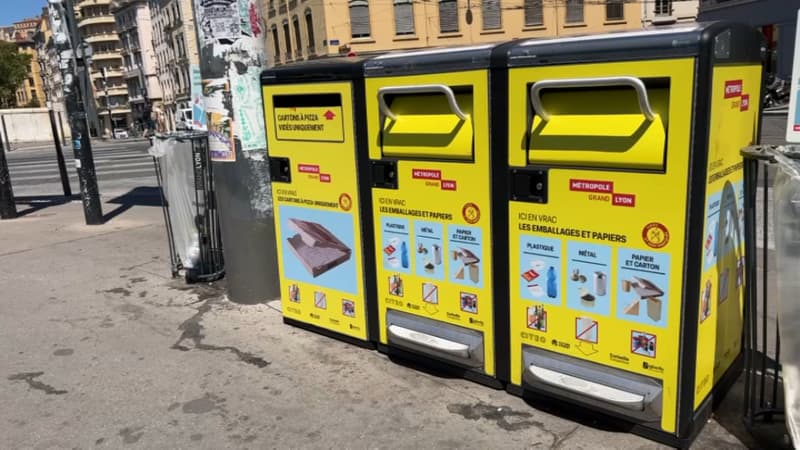French households improved their classification of plastic packaging in 2023, the traditional weak link in the yellow container, but are still far from European targets.
The French recycled 27% of plastic packaging in 2023, up from 24.5% in 2022, according to figures revealed on Monday by Citeo, the organization that coordinates the collection and sorting of household packaging waste.
The French recycled an additional 120,000 tonnes of plastic packaging between 2022 and 2023, an increase that Jean Hornain attributes in particular to the end of the application of the extension of sorting instructions for all plastics, with “a simplification effect”.
This increase in plastic, to which is added that of paper and cardboard, whose recycling rate went from 63 to 69%, allows Citeo to announce a global recycling rate for domestic packaging that increases 1.5 points, to 67 %.
Thus, the French classified 58 kilograms of domestic packaging per inhabitant in 2023, or 1.5 kg more than in 2022.
“We should be happy, because we are moving forward,” said Jean Hornain, although he acknowledged that “we are not on the trajectories” set by Brussels for plastic and, to a lesser extent, aluminum, recycled at 27 and 37% respectively. while Europe has set a goal of recycling 55% of plastic packaging waste by 2030 and 60% of aluminum.
France falls behind in Europe
France, which recycles packaging materials such as glass and steel very well (86% for both in 2023), is traditionally at the bottom in terms of the recycling rate of its plastics: according to Eurostat, it ranked 25th in 2022, very far from countries like Slovakia or Germany, already in line or almost with the objective set by Brussels.
Some of these countries, such as Belgium, have generalized an incentive pricing policy, the objective of which is to limit the production of domestic waste in the gray container, charging the user only for the waste they produce, which encourages greater classification.
“It is a lever of performance”, for Jean Hornain, who emphasizes that only between seven and eight million French people benefit from this approach, a figure much lower than that provided for by the energy transition law for green growth of 2015: the text sets a goal of 15 million inhabitants in 2020, then 25 million in 2025.
Another lever for improvement: the recycling of packaging that until now was not recycled or was poorly recycled, such as the polystyrene yogurt container.
To do this, Jean Hornain hopes to soon have a factory in Antwerp, Belgium, currently in the testing phase, “to be able to make a circular loop, from the yogurt pot to the yogurt pot, where today the yogurt pot makes hangers and flower pots instead.
Source: BFM TV


